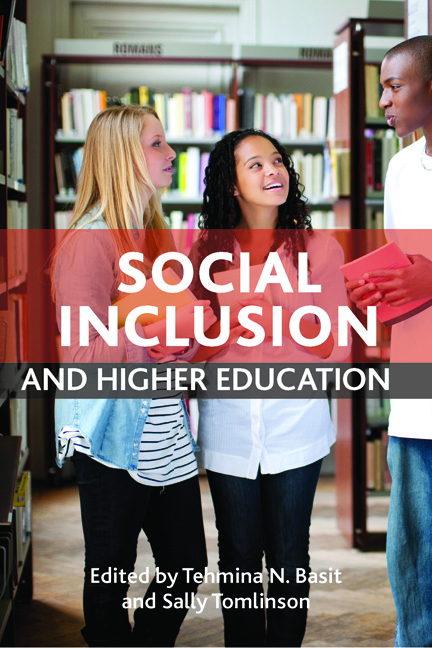Introduction
Published online by Cambridge University Press: 01 September 2022
Summary
The key issue this book addresses is that of the experiences of students from what has been termed ‘non-traditional backgrounds’ in institutions of higher education. Over the past 30 years there has been a considerable expansion of higher education worldwide – in public and private universities, liberal arts colleges, community colleges and others – and a corresponding increase in the numbers attending. Who has access to higher education, and acquires qualifications that on the whole still guarantee lifetime higher incomes and status, has generated much debate and political intervention. While the politics of access has largely been framed in the language of social equity, encouraging the inclusion of women and men from lower socio-economic groups, those from minority ethnic groups, those with disabilities, and mature people (see Williams, 1997; Tapper and Palfreyman, 2005; Marginson, 2011), there has been minimal focus on what actually happens to the students once they are in the institutions.
Widening participation to include groups of people who do not have a tradition of higher education in their families has, over the past 30 years, become official policy in many countries. It reflects notions of equity and social justice, and the idea that if higher education is a public good, and mainly publicly-funded, then no group should be excluded. It also reflects governmental anxieties that ‘knowledge economies’ need more students educated to higher levels to keep national economies competitive, whatever their background. While there is a very large literature on the expansion of higher education, its causes and likely consequences, there has been less focus on the actual experiences of students from these diverse backgrounds, what teaching and learning is offered, and how they and the staff teaching them perceive their higher educational experiences.
Many new universities in the UK, including the University of Wolverhampton and Staffordshire University, subscribe to a widening participation agenda. At the University of Wolverhampton in England, a ‘new university’ created from existing institutions in 1992 and taking in large numbers of mature students, especially women, and students from racial and ethnic minority groups, academic researchers had begun to research the experiences of their students and those in other similar institutions.
- Type
- Chapter
- Information
- Social Inclusion and Higher Education , pp. 1 - 14Publisher: Bristol University PressPrint publication year: 2012



